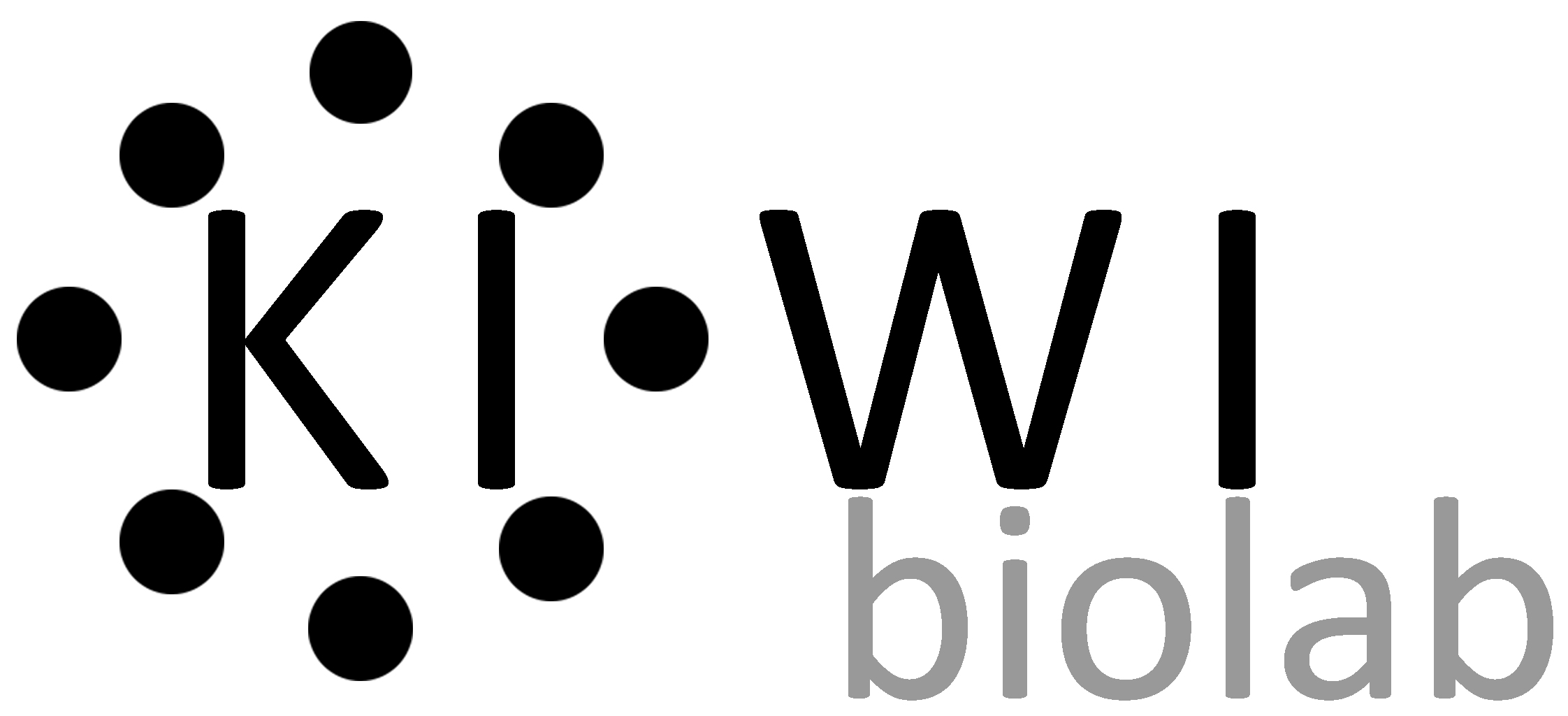Welcome to the KIWI-biolab seminar series
Once a month we are hosting an expert in one or various of the topics related to our lab, including bioprocess development, machine intelligence and automation, among others.
Visit this website to stay tunned! If you want to receive the invitation for the upcoming talks, please, send an email to marta.gonzalezgomez@tu-berlin.de
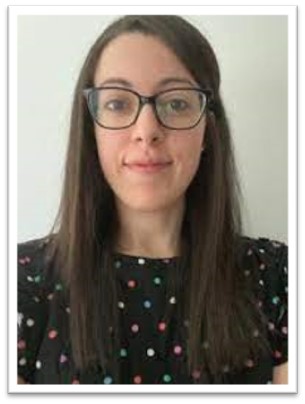
KIWI-biolab Talk: Gabriella Pizzuto, University of Liverpool
Creating the Next Generation of Intelligent Robotic Scientists
10.10.2023, 16:00 (CET), virtual
We have invited Dr. Gabriella Pizzuto for a talk on Tuesday, October 10th, at 16:00 (Brussels time).
“Creating the Next Generation of Intelligent Robotic Scientists”
There is strong demand to accelerate the discovery of materials for industrial applications such as healthcare and energy production. Whilst our robotic scientist has outperformed human-level performance in finding clean sustainable fuels, there are still open problems when it comes to having intelligent heterogeneous robotic systems working in laboratories designed for human scientists. In this talk, I will highlight our current progress on using robotics and artificial intelligence in Autonomous Chemistry Labs. I will also discuss some of the additional challenges associated with having robots in this semi-structured environment surrounded by human scientists, and how we are pushing the boundaries of robotics research by deploying robots these real-world environments. Finally, my talk will present the lessons learned and suggest my group’s vision to specifically address open questions in this field, to bring us closer to our goal of creating smarter robotic scientists capable of carrying out long-term material discovery experiments.
Biography
Dr Gabriella Pizzuto is an interdisciplinary early career researcher in robot learning, Assistant Professor (Lecturer) in Robotics and Chemistry Automation and Royal Academy of Engineering Research Fellow at the University of Liverpool. With her group, she is working towards developing the next generation of robotic scientists for accelerating material discovery. She was previously the lead research associate on the ERC Synergy Grant ‘Autonomous Discovery of Advanced Materials’ (ADAM) following her time as a research associate at the Edinburgh Centre for Robotics. She obtained her Ph.D. in Computer Science from the University of Manchester, where she was also a Marie-Sklodowska Curie early stage researcher and a visiting scholar at the University of Edinburgh and Italian Institute of Technology. She is broadly interested in different topics within the intersection of robot learning, vision and control, focusing on generalisation and safe human-robot collaboration, particularly for real-world environments such as physical sciences laboratories.
You can find more information at https://gabriellapizzuto.github.io/
You can join the talk here.
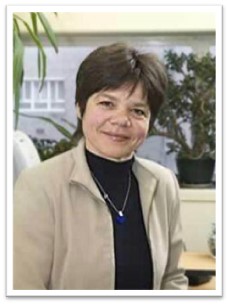
KIWI-biolab Talk: Jarka Glassey, Newcastle University
Preparing the next generation of chemical engineers for the transition to net zero/circular economy
20.04.2023, 17:00 (CET), virtual
We have invited Prof. Jarka Glassey for a talk on Thursday, April 20st, at 17:00 (Brussels time).
“Preparing the next generation of chemical engineers for the transition to net zero/circular economy”
The use of advanced modelling and control procedures is becoming widely accepted across a broad range of industrial sectors, including bioprocessing. However, significant challenges remain using these methods in the information limited development environment, particularly when complex biological molecules or processes are involved. This is especially evident in cell culture processing for production of a range of products, such as monoclonal antibodies, where knowledge of critical quality attributes is limited.
This presentation will highlight some advances in this area through examples of model-based bioprocess development and advanced process monitoring to assist those who are seeking to make fundamental changes to the drug manufacturing philosophy. Whilst using monoclonal antibody production as an example, some modelling techniques will be demonstrated on other suitable processes.
Biography
Prof Jarka Glassey completed her biochemical engineering studies at the Slovak Technical University in Bratislava and currently works at Newcastle University, UK. Her research approach is based on the use of machine learning, AI and hybrid modelling for bioprocess development, scale-up and process intensification. She is currently VP Executive of EFCE and VP Executive of ESBES and is actively involved in the EFCE working party on Education, WP on QbD as well as the Measurement, modelling, monitoring and control section of ESBES.
You can find more information at https://www.ncl.ac.uk/engineering/staff/profile/jarkaglassey.html
You can join the talk here.
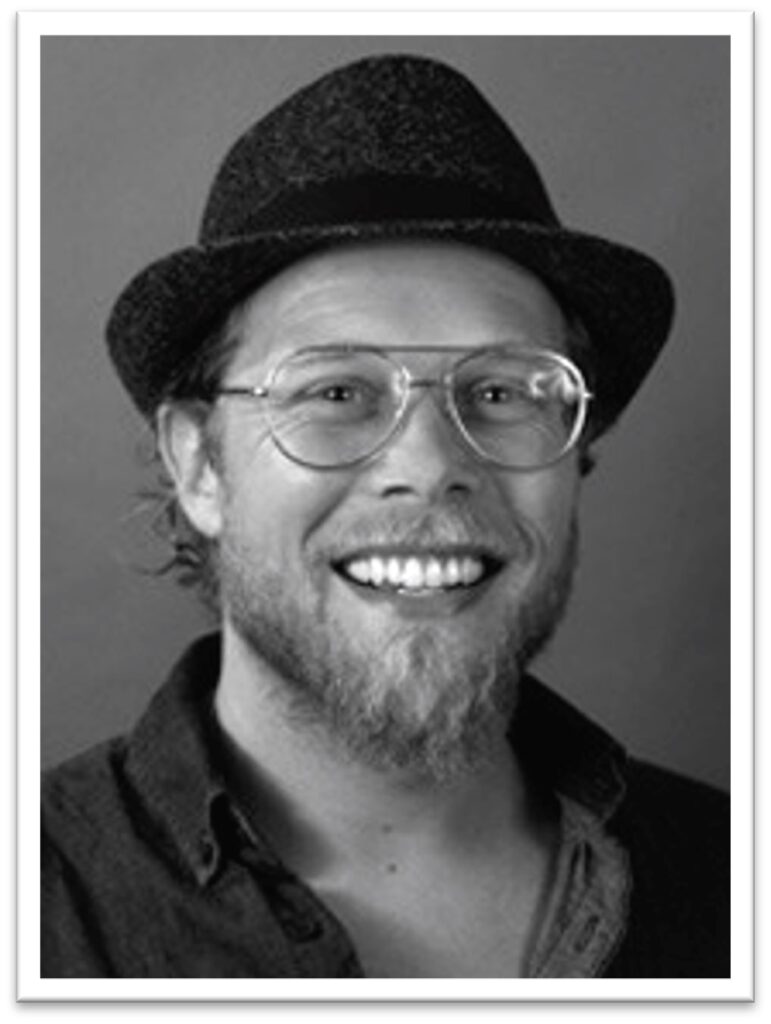
KIWI-biolab Talk: Daniel Haehn, University of Massachusetts Boston
Visual Computing for Biomedical Applications
21.02.2023, 16:00 (CET), virtual
We have invited Dr. Daniel Haehn for a talk on Tuesday, February 21st, at 16:00 (Berlin time).
Dr. Haehn is an Assistant Professor of Computer Science at the University of Massachusetts Boston and Associate of Computer Science at the Harvard Paulson School of Engineering and Applied Sciences.
Dr. Haehn’s research spans computer vision, graphics, and human-computer interaction – especially for biomedical applications.
In his talk, Visual Computing for Biomedical Applications, he will showcase some of his on-going research projects.
You can find more information about his lab at mpsych.org
You can join the talk here.
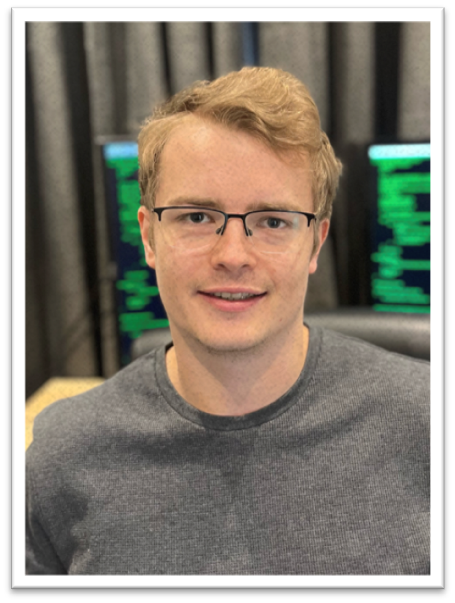
KIWI-biolab Talk: Neythen Treloar, University College London
Deep Reinforcement Learning for Optimal Experimental Design in Biology
07.12.2022, 16:00 (CET), virtual
We have invited Dr. Neythen Treloar for a talk on Wednesday, December 7, 2022, at 16:00h.
His talk is entitled: Deep Reinforcement Learning for Optimal Experimental Design in Biology
Dr. Treloar is currently a postdoc in the Computational Systems and Synthetic Biology lab at University College London, where he also attained his PhD. His research involves developing and applying new machine learning, computing and mathematical methods to problems in biology. Some of his work is focused on applying deep reinforcement learning methods to bioprocess optimization and optimal experimental design. He is also developing new algorithms to design biocomputers from patterns of bacterial colonies.
Abstract:
The field of optimal experimental design uses mathematical techniques to determine experiments that are maximally informative from a given experimental setup. In this talk I demonstrate the application of a technique from artificial intelligence—reinforcement learning—to the optimal experimental design task of maximizing confidence in estimates of model parameter values. I show that a reinforcement learning approach performs favourably in comparison with a one-step ahead optimisation algorithm and a model predictive controller for the inference of bacterial growth parameters in a simulated chemostat. Further, I demonstrate the ability of reinforcement learning to train over a distribution of parameters, indicating that this approach is robust to parametric uncertainty.
You can join the talk here.
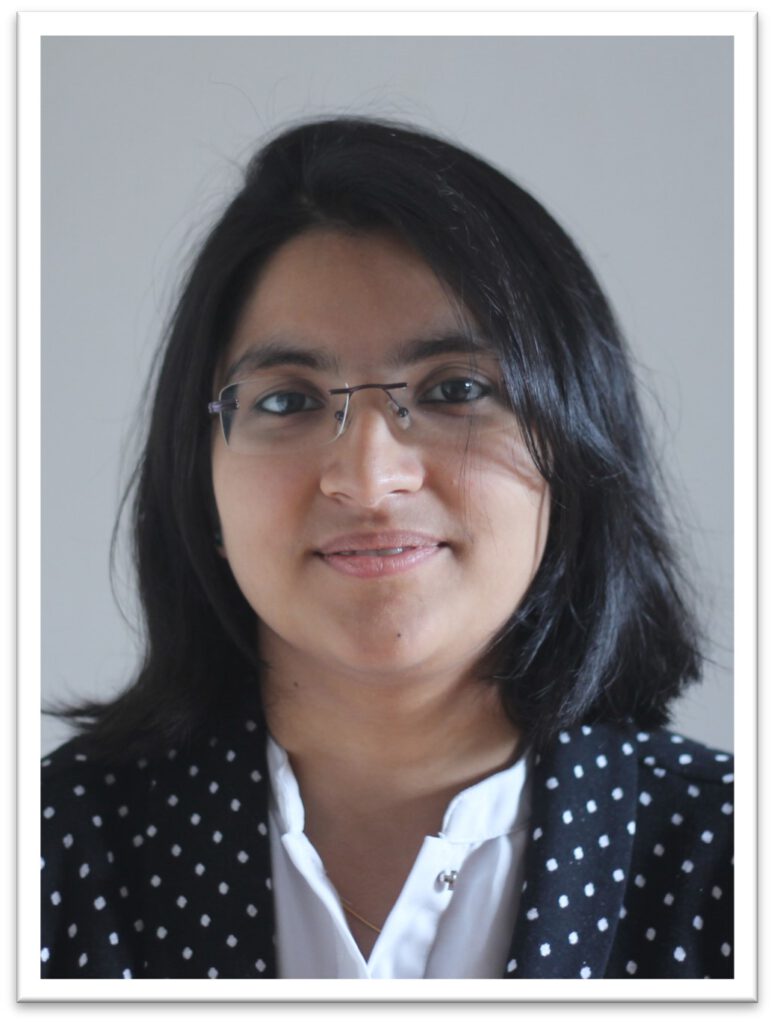
KIWI-biolab Talk: Harini Narayanan, Massachusetts Institute of Technology
Machine Learning & Hybrid Modeling: Tools for biopharmaceutical development and production
27.10.2022, 16:00 (CEST), virtual
We have invited Dr. Harini Narayanan for a talk on Thursday, October 27, 2022, at 16:00h.
Her talk is entitled: Machine Learning & Hybrid Modeling: Tools for biopharmaceutical development and production
Dr. Narayanan is currently a postdoctoral associate in the group of Prof. Christopher Love at MIT. She received her bachelors in chemical engineering from the National Institute of Technology in 2016. Following that she did her M.Sc. and Ph.D. in chemical and bioengineering from ETH Zurich. Her primary area of focus has been the development of Machine Learning and Hybrid modeling tools to make biomanufacturing smarter, faster, and cheaper. While her doctoral work was predominantly focused on upstream and downstream process modeling, her postdoctoral work has been focused on applying the principle of ML/AI to the molecular and genetic engineering of the production hosts. She has co-authored more than 10 papers and presented at several conferences ranging from chemical engineering to bioengineering and pharmaceutical sciences.
You can join the talk here.

KIWI-biolab Talk: Dongda Zhang, University of Manchester
Hybrid and data-driven approach for bioprocess predictive modelling
07.09.2022, 16:00 (CEST), virtual
We have invited Dr. Dongda Zhang for a talk on Wednesday, September 7, 2022, at 16:00h.
His talk is entitled: Hybrid and data-driven approach for bioprocess predictive modelling
Abstract: Recent advances in data intelligence and machine learning have provided an unprecedented opportunity to transform industrial biochemical processes into the era of digital manufacturing. Despite of this great potential, predictive modelling of bioprocesses with small data is a severe challenge due to the complexity of underlying systems. As a result, integrating machine learning with first-principle modelling becomes a promising approach to resolve otherwise intractable problems. In this presentation, we will discuss how to use advanced hybrid and data-driven modelling strategies for bioprocess dynamic modelling, online optimisation, knowledge transfer, and upscaling. Their advantages and limitations will be also highlighted through different case studies.
Dr. Dongda Zhang is a University Lecturer at the School of Chemical Engineering and Analytical Science at the University of Manchester and an Honorary Research Fellow at the Centre for Process Systems Engineering at Imperial College London. He is currently the IChemE Representative of the University of Manchester. He holds a BSc degree (2011) from Tianjin University and a MSc (Distinction) degree (2013) from Imperial College London. He completed his PhD research at the University of Cambridge in 2016, and then moved to the Centre for Process Systems Engineering at Imperial College London as a postdoctoral research associate. In 2017, he was awarded the prestigious Leverhulme Early Career Fellowship at the University of Cambridge, followed by his appointment at the University of Manchester as a University Lecturer in the same year.
You can have a look to his profile and work here.
You can join the talk here.
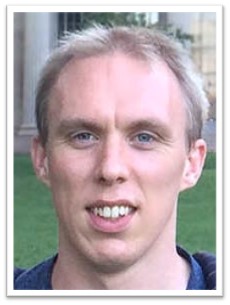
KIWI-biolab Talk: Thomas Gorochowski, Bristol BioDesign Institute
End-to-end experimental and machine learning workflows for predictive genetic design
12.07.2022, 16:00 (CEST), virtual
We have invited Dr. Thomas Gorochowski for a talk on Tuesday, July 12, 2022, at 16:00h.
Dr. Gorochowski is co-Director of the Bristol BioDesign Institute (BBI) at the School of Biological Sciences in the University of Bristol (UK). There, he leads the Biocompute Lab, that explores the molecular-scale mechanisms that individual cells and groups of cells use to make sense of their world. They apply synthetic biology tools to create new living systems from the ground-up. By studying these artificial systems, they aim to better understand how biological parts are best pieced together to perform useful computations, opening up new ways of reprogramming cells.
His talk is entitled End-to-end experimental and machine learning workflows for predictive genetic design
Abstract: High-throughput experiments combined with emerging machine learning (ML) technologies are enabling data-centric biological design workflows for synthetic biology. In this talk, I will introduce some of the ways my group are contributing to this area, both from an experimental perspective, where nanopore sequencing is being used to characterise diverse libraries of genetic parts and circuits, to improved data processing pipelines and the rigorous optimisation of machine learning models for predicting the function of genetic parts from sequence alone. I aim to show the value of considering these workflows from end-to-end and how this can help improve quality and reproducibility of results.
You can have a look to the Biocompute Lab here.
You can visit the BBI website here.
You can join the talk here.
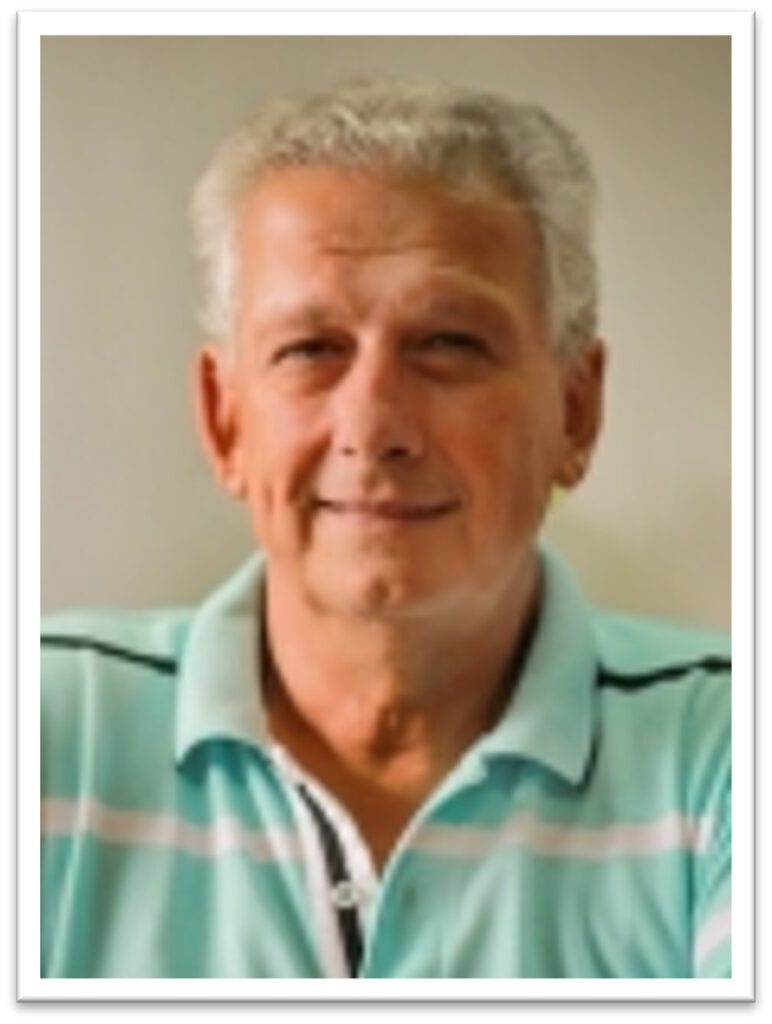
KIWI-biolab Talk: Aldo Vecchietti, Instituto de Desarrollo y Diseno (INGAR/CONICET)
Computational methods to model complex bioprocess for ethanol 2G
08.06.2022, 15:00 (CEST), virtual
We have invited Prof. Aldo Vecchietti for a talk on Wednesday, June 8, 2022, at 15:00h.
Prof. Vecchietti leads the Instituto de Desarrollo y Diseno (INGAR), an institute associated to the National Scientific and Technical Research Council in Argentina (CONICET).
The title of his talk is “Computational methods to model complex bioprocess for ethanol 2G“:
Second generation bioethanol (2G) obtained from the agricultural and forest industries residues presents a large interest, because of tis availability and low cost. Besides of reducing the GHG emissions, they do not compete with food production and avoid eutrophication of watercourses and soil erosion. The 2G ethanol production process has made great progress in recent decades due to the enzymatic hydrolysis (EH) stage of lignocellulosic materials, which allowed to obtain better yields to evolve to an industrial scale. These advances were possible because of the increase in the enzymatic conversion (EC) yield. However, the mechanisms by which this process occurs are only superficially understood, due in part to the large number of reactions and enzymes involved. To study the process, it is necessary to have computational models to predict its behavior. We are proposing two computational models to represent the enzymatic conversion such that they can be used for the simulation and optimization of the whole 2G ethanol process production. The first one is based on fuzzy logic techniques while in the second one Artificial Neural Networks are employed.
You can have a look to his work here.
You can join the talk here.

KIWI-biolab Talk: Wolfgang Müller, Heidelberg Institute for Theoretical Studies
50 4 ways to FAIR your data
10.05.2022, 16:00 (CEST), virtual
We have invited Dr. Wolfgang Müller for a talk on Tuesday, May 10, 2022, at 16:00h, entitled “50 4 ways to FAIR your data”.
Dr. Müller leads the Scientific Databases and Visualization Group (SDBV) at the Heidelberg Institute for Theoretical Studies (HITS). He is also Privatdozent at the Department for Business informatics and Applied Informatics at the University of Bamberg.
His team creates, populates and maintains data base applications, mostly for the use in systems biology. System biology strives to reach a system understanding of biological systems. The challenges that SDBV addresses range from data integrations and efficient data structures to Human Computer Interaction, as well as social aspects of Open Data.
Dr. Müller has been coordinator of the data management of the systems biology Virtual Liver Network, and is data management coordinator of the currently running LiSyM (Liver SystemsMedicine). He is also HITS’ delegate in transnational life sciences infrastructure initiatives as FAIRDOM, ISBE, and ELIXIR.
You can have a look to his work here and here.
You can join the talk here.

KIWI-biolab Talk: Luis García Naranjo, University of Padova
An introduction to dynamical systems
17.03.2022, 16:30 (CET), virtual
We have invited Prof. Luis Constantino García Naranjo for a talk on Thursday, March 17, 2022, at 16:30h.
Prof. García Naranjo is an Associate Professor at the Department of Mathematics in the University of Padova, Italy.
The title of his talk is “An introduction to dynamical systems”.
Dynamical systems is a central branch of modern mathematics with important applications to other scientific disciplines and other areas of mathematics. In this introductory talk, aimed at the non-expert, he will present the ideas underlying some fundamental aspects of the theory like stability, linearization, rectification, Poincaré maps and the theory of invariant manifolds. He will also consider some properties of Hamiltonian systems aiming to discuss, at least briefly, the concept of integrability and the emergence of chaos.
You can have a look to his work here and here.
You can join the talk here.
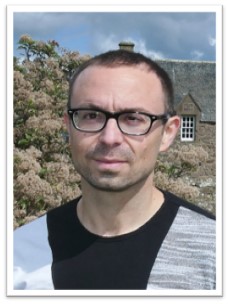
KIWI-biolab Talk: Andreas Sommer, Heidelberg University
IFDIFF – A Matlab toolkit for ODEs with state-dependent switches
16.02.2022, 16:00 (CET), virtual
We have invited Dr. Andreas Sommer for a talk on Wednesday, February 16, 2022, at 16:00h.
Dr. Sommer is a senior scientist at the Interdisciplinary Center for Scientific Computing (IWR) at Heidelberg University, Germany.
The title of his talk is “IFDIFF – A Matlab Toolkit for ODEs with State-Dependent Switches”.
In his talk, Dr. Sommer will cover some aspects for the numerical solution of and sensitivity generation in ODEs with state-dependent switches in the right-hand side. He will give an introduction onto the solution methodology of switched (hybrid) ODEs and show pitfalls using naive numerical approaches. He will further present an automated programmatic tool extending the Matlab-internal integrators (ode45, ode15s, etc.) for integration and sensitivity generation of parameterized implicitly (state-dependent) switched ODEs whose right-hand side is given as Matlab program code containing non-differentiable (“max”, “min”, etc.) and conditional (“if”) operators.
You can visit his lab here.
You can join the talk here.
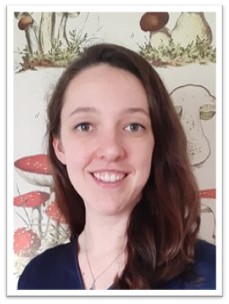
KIWI-biolab Talk: Marieke Klijn, TU Delft
Data-driven bioprocess development
19.01.2022, 16:00 (CET), virtual
We have invited Dr. ir. Marieke Klijn for a talk on Wednesday, January 19, 2022, at 16:00h. The title of her talk is “Data-driven bioprocess development”.
Dr. Klijn is Assistant Professor and head of the Applied Analytical Technology and Data-Driven Bioprocess Design team at the Bioprocess Engineering section in the TU Delft, Netherlands.
Dr. Klijns research focuses on establishing data analytical frameworks, which handle data from process analyzers for process characterization and work towards (near) real-time product quality assessment as a function of (continuous/intensified) upstream processing. Their work aims for a high degree of flexibility, so that bioprocessing strategies from different sectors of the biotechnology industry can be implemented.
You can visit his lab here.
You can join the talk here.
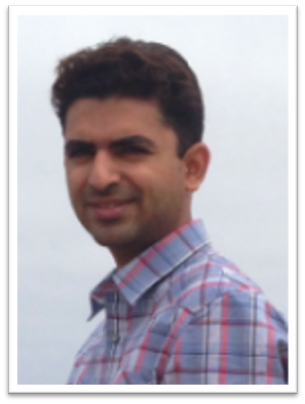
KIWI-biolab Talk: Hosein Mohimani, Carnegie Mellon University
Computational methods for discovering microbial natural products with antibiotic activity
14.10.2021, 18:00 (CET), virtual
We have invited Prof. Hosein Mohimani for a talk on October 14, 2021, at 18:00h. His talk is entitled “Computational methods for discovering microbial natural products with antibiotic activity”.
Prof. Mohimani is the head of the Metabolomics and Metagenomics Lab and Assistant Professor of Computational Biology at the School of Computer Science, Carnegie Mellon University (Pittsburgh, US).
His research focuses on the development of computational metabolomics and metagenomics methods for antibiotic discovery and microbiome analysis. Microbes in human body interact with their human host and with each other through small molecules (e.g. antibiotics and signaling molecules). Mining the human metagenome has shown that human microbiome has a great potential for production of small molecules. Most of such molecules remain unknown, even though they can play a crucial role on human health. Mohimani’s lab is specifically interested in analyzing large scale mass spectrometry and metagenomics data using tools from machine learning, genome mining, signal processing, graph theory, and statistics to discover novel genetically synthesized small molecules in the human microbiome.
You can visit his lab here.
You can join the talk here.
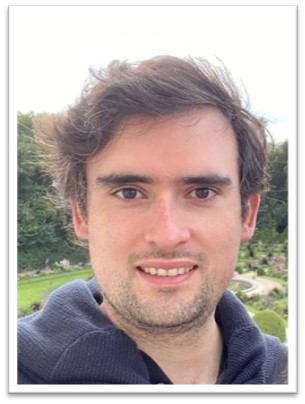
KIWI-biolab Talk: Antonio del Rio Chanona, Imperial College London
Data-driven optimization and control of chemical processes
15.09.2021, 16:00 (CET), virtual
We have invited Dr. Antonio del Rio Chanona for a talk on September 15, 2021, at 16:00h. His talk is entitled “Data-driven optimization and control of chemical processes”.
Dr. del Rio Chanona is the head of the Optimisation and Machine Learning for Process Systems Engineering Group, at the Department of Chemical Engineering, and the Centre for Process Systems Engineering, Imperial College London, UK.
His group has two main branches of research, on one hand, developing new and more efficient optimisation, reinforcement learning and machine learning algorithms that allow to solve general problems in the systems domain. On the other hand, applying existing state-of-the-art techniques to address current challenges in process engineering, being bioprocesses the main area of application.
You can visit his lab here.
You can join the talk here.
